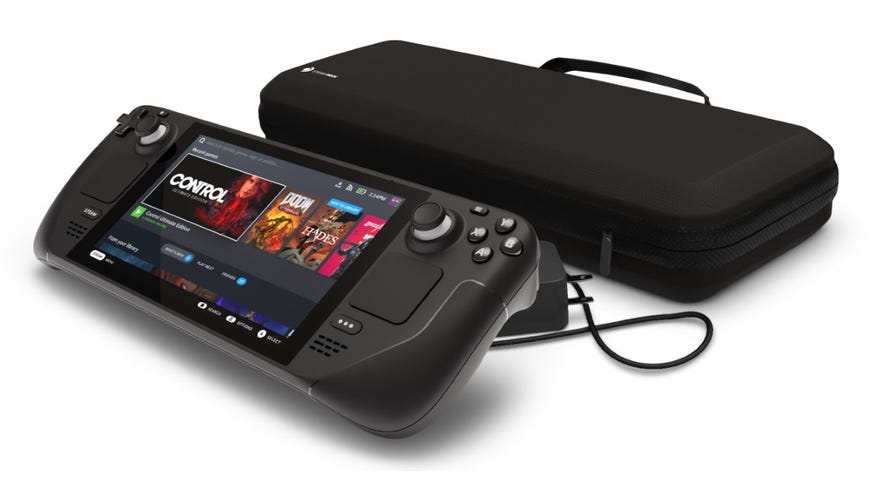Valve "weren't interested" in making a Steam Deck that only played low-spec games
"We really wanted to put the Steam catalogue first."
Ever since the Steam Deck was first unveiled last month, Valve have said one of their top design goals was making sure it could play the entire Steam back catalogue, including games from the last 12 months. It's a tall order for such a dinky little device, but speaking to Steam Deck designers Greg Coomer and Lawrence Yang over Zoom last week, it's clear the team never really considered any other option. "Although we did discuss versions of the device that would be more appropriate for, say, lower-spec games, that was never really a prominent thrust of our work," Coomer tells me. "It wasn't really interesting to a lot of people who work here."
Fellow Steam Deck designer Lawrence Yang agrees: "Yeah, we wanted a device that would be powerful enough to handle anything that you threw at it, and if you wanted to play a really high fidelity game on it, you could," he says, echoing Valve boss Gabe Newell's comments late last month about finally giving PC gamers a great mobile hardware option.
The thing is, "[putting] the Steam catalogue first" was easier said than done, and had it not been for AMD's most recent line-up of low power, high performance APUs, the Steam Deck might not have come to fruition this year at all.
"We've been discussing a device like this for several years," says Coomer, "even back when we were mostly focused on things like the Steam Controller or a streaming device. But a bunch of things had to come true first for it to be viable in our eyes.
"We weren't really interested in making a handheld device that couldn't play all the games on Steam. We tossed around the idea of making something that was based on a very different architecture - you know, something that was not an x86 kind of PC-like solution - but that would have diverged quite a ways from a device that was fundamentally designed to play the games that were already on Steam. So only just recently when we've been working with AMD did we really think it became possible to bring a product to market that had the performance envelope that was correct to play the latest triple-A games and do it really well, and do it in a small form factor without, you know, melting - and we're really happy with what we've been able to achieve. If we had tried to do it even a couple of years ago, it would have been a lot more difficult."
It's not just AMD's hardware that's been critical in getting Steam Deck off the ground. Valve have also taken a lot of lessons from their failed Steam Machines in creating the Steam Deck, and their work on making controllers for their Index VR headset has also contributed to making sure the Deck's analogue sticks will be completely free from the dreaded stick drift.
There's more to come from my chat with Coomer and Yang, so watch out for more Steam Deck news later this week.


